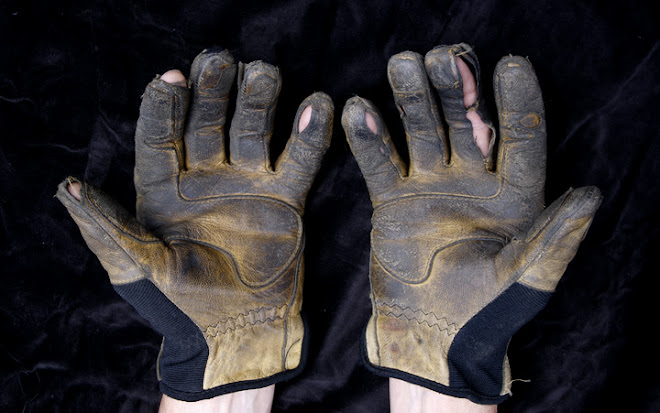This one is for all you actors out there...
I wasn't planning to post anything else until 2014, but then the Bad Old Year of 2013 paused at the door to give me one last sneering kick in the teeth before heading out into the land of no return. Having successfully dodged an ugly cold virus that swept through our crew over the past couple of months, I thought I was home free... but it finally caught me by the ankles and took me down on the five yard-line the weekend before we began filming our last episode of the year.
Which presented me with the eternal dilemma of the Hollywood free-lancer: to work or not to work?
That was indeed the question.
But given that most film industry Work-Bots (even the core members of a crew) get bupkis in terms of sick days, my choice was stark -- stay home and get well or go to work and get paid. And since the malaise was just a cold (however miserable the initial stages) rather than the halucinatory fever and gut-wrenching nausea of a flu bug, I popped a couple of Advils and drove to work.
This wasn't quite the morally queasy decision it might have been. Since I was among the last of our crew to get this particular cold, there wasn't much chance I could pass it on to anybody else. Besides, having carefully scrutinized our schedule of episodes and done the math to determine exactly how much income I'd wind up with by year's end, I was very reluctant to -- in effect -- give any of that money back. That's what it feels like when you get sick as a part of a machine that makes no allowances for normal human frailties.
If this sounds ridiculous (as it probably does to those of you who work normal jobs), I understand, but nothing Hollywood resembles a normal job. Believe me, everybody in this business knows exactly what I'm talking about.
Still, working a tough lighting day with half my normal energy and a wobbly, hydrocephalic head full of snot and God knows what else was a grueling ordeal. It was all I could do to crawl home and into bed at the end of the day... but I did not slip into that restless sleep before inhaling a bowl of the miracle that is home-made chicken soup. And I swear to whatever deity you believe in, that time-tested elixir worked wonders. I felt much better by Wednesday's block-and-shoot, and almost back to normal for Thursday's audience shoot and post-show Christmas party.
Chicken soup, people -- it's magic.
At one point on Thursday, one of the camera assistants showed me the above video featuring The Killers (with Dawes) doing "Another Christmas in LA," and although -- inshallah -- I'll be spending the holidays back on my Home Planet, I thought that video might resonate with many who have traveled here from far distant places chasing the shimmering mirage of film industry success.
Especially all you wannabe actors out there. I feel for you.
Then again, I feel for us all, because this is not an easy time of year for anybody. Old ghosts and demons rise from their dank crypts to haunt these cold, long, dark winter nights. There is no escape. We just have to stare them down and wait for the chilly light of dawn, even when it seems it'll never come.
And then we get Christmas itself, which usually feels like a slow-motion train wreck until the actual day arrives... at which point the miracle always seems to happen as it all comes together one way or another. So in that slightly loopy but eternally grateful spirit, I offer you one more musical tribute to the season by the inimitable Robert Earl Keene. I like it a lot, and maybe you will too.
Or not. Hey, there really is no accounting for taste.
....and this one is for the rest of us.
I'm outta here, folks. Wherever you are and whatever your circumstances during this most troublesome of seasons, do have yourselves a merry little Christmas.





